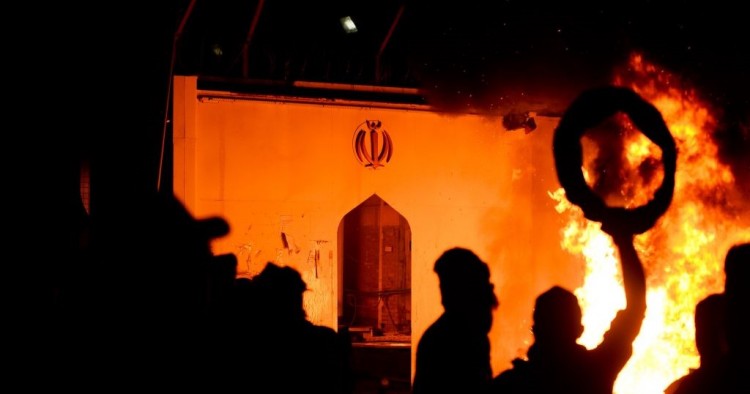Tehran’s reaction to the resignation of Iraqi Prime Minister Adel Abdul-Mahdi is one of accepting the seemingly inevitable. For the two-month duration of the Iraqi popular protests, the official stance in Tehran had been to blame the U.S. and other foreign powers as the instigators. Even as the Iranian consulate in Najaf was set on fire by protesters last week, Tehran maintained the incident was part of an alleged U.S. pressure strategy against the Iraqi state. According to Tehran, Washington had given the Iraqi authorities a simple choice: They could either push Iran out of Iraqi politics and opt for closer ties with Washington and its Arab regional allies or the Americans would punish Baghdad by sponsoring the protests that Tehran claims are U.S.-controlled.
The trouble is that the Iranians themselves did not believe this narrative. Not only have Iranian analysts for a long time highlighted corruption and political paralysis in Baghdad as the main reason behind popular anger, but the same analysts have also, up until recently, pointed out that Iraqi political players — such as Muqtada al-Sadr or Haider al-Abadi — might have a vested interest in the protests and may even see a political benefit in their continuation. Iranian media had gone as far as specifically naming an Iraqi politician close to former Prime Minister Abadi as the mastermind behind the attack on the Iranian consulate in Najaf. Putting the propaganda war against the U.S. aside, the Iranians seem to believe that some Iraqi political interests are behind the anti-Iran momentum of the protests, which is part of power politics in Baghdad. In the end, Iranian officials and state media did not react to Abdul-Mahdi’s resignation by blaming the U.S., but rather by highlighting that his government had lost the support of Grand Ayatollah Ali al-Sistani, the top Shi’a cleric in Iraq.
Alex Vatanka is a Senior Fellow at MEI who specializes in Middle Eastern regional security affairs with a particular focus on Iran.
Photo by HAIDAR HAMDANI/AFP via Getty Images
The Middle East Institute (MEI) is an independent, non-partisan, non-for-profit, educational organization. It does not engage in advocacy and its scholars’ opinions are their own. MEI welcomes financial donations, but retains sole editorial control over its work and its publications reflect only the authors’ views. For a listing of MEI donors, please click here.













